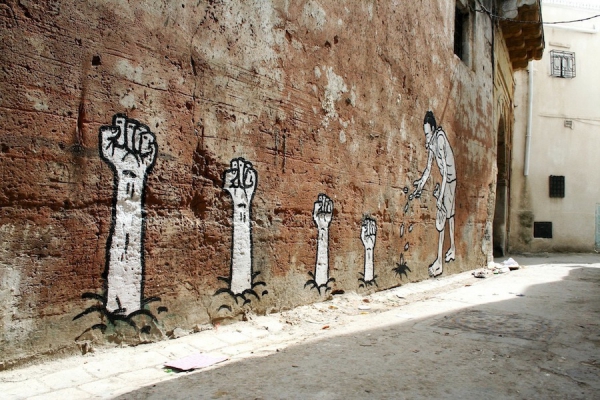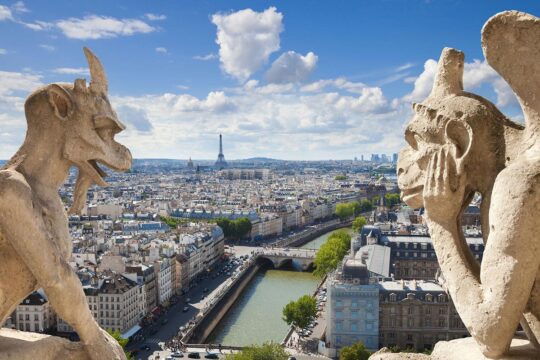The way history is remembered was a theme emerging this week not only in Tunisia and Germany but also France, in the grip of presidential elections.
Remembrance and the past were one of the numerous subjects of debate between the two second-round French presidential candidates. “The country’s 20th century history, including the Algerian War and the Second World War, brought some of the fiercest clashes between Marine Le Pen and Emmanuel Macron,” writes JusticeInfo editorial advisor Pierre Hazan. “Doesn’t France also need a Truth Commission to better deal with its colonial past?”
And Hazan explains the clash thus: “Macron and Le Pen have two different ways of seeing France. Whatever the result of these elections, France is not done with dealing with its past. Dealing with the past also means defining the present, affirming its values and setting goals for the future.”
Another country trying to build a common view of history is Tunisia after Ben Ali, this time through art, explains Sahar Ammar, a student at the Geneva Academy of International Humanitarian Law and Human Rights. Culture allows communities to own their past again and participate in reconciliation and restorative justice processes, the author says. Tunisian artists have committed themselves to this work on the past, such as Gilbert Naccache, a prisoner under the old regime who started writing in his jail cell on cigarette paper, and a group that paints on cars burned during the Revolution, so as to transform them into memorials.
This work of dealing with the past can still seem incomplete in Germany, which nevertheless has seemed exemplary in dealing with its Nazi crimes.
In June, the German Max Planck institute is to proceed with identification of thousands of remains of handicapped and sick people exterminated under the Third Reich -- a last, belated but necessary step in a shameful period for German medicine and science. “Can the identity of these victims be recovered?” asks the institute in a press release. “To what extent were their remains used for research” during the war but also “up to the 1990s”?
“The most honest form of apology comes in revealing guilt,” Max Planck President Hubert Markl said in 2001, asking forgiveness from victims of Nazi experiments.







